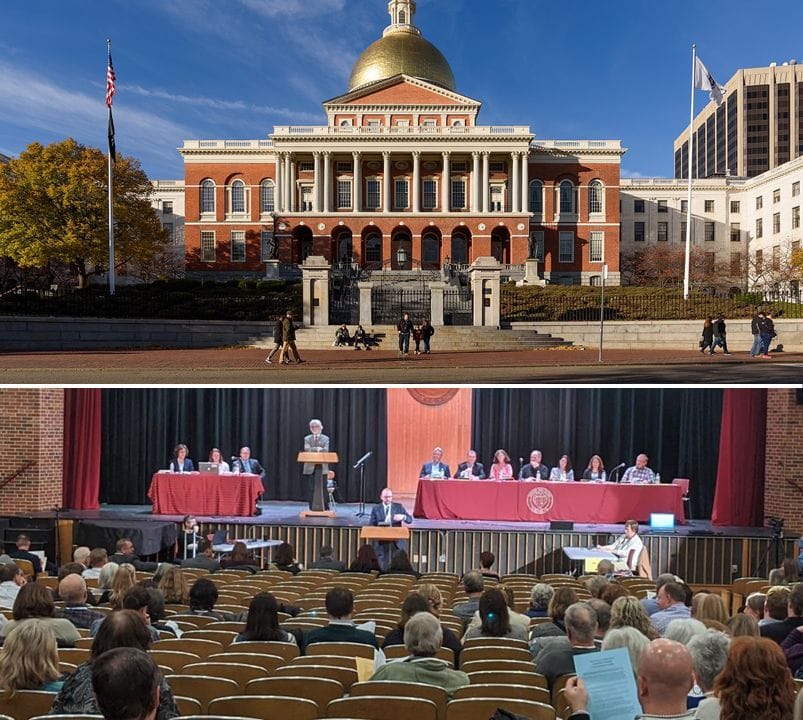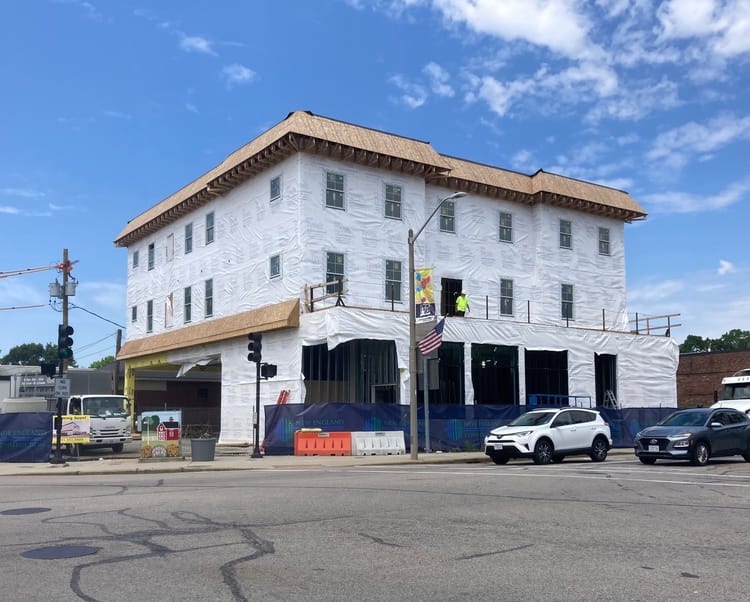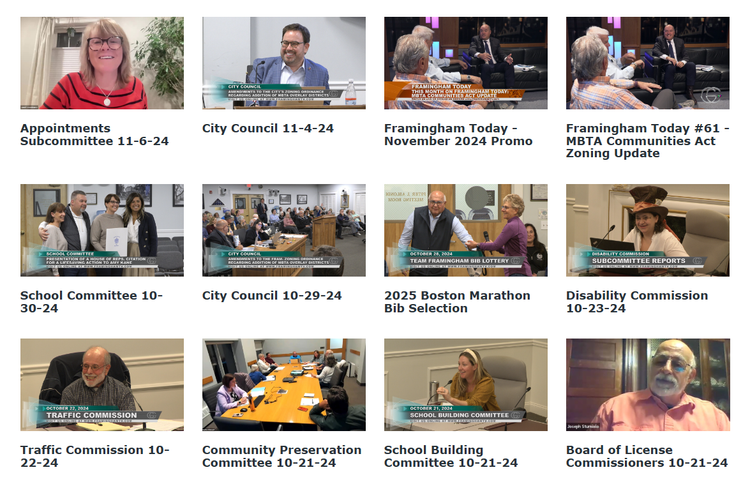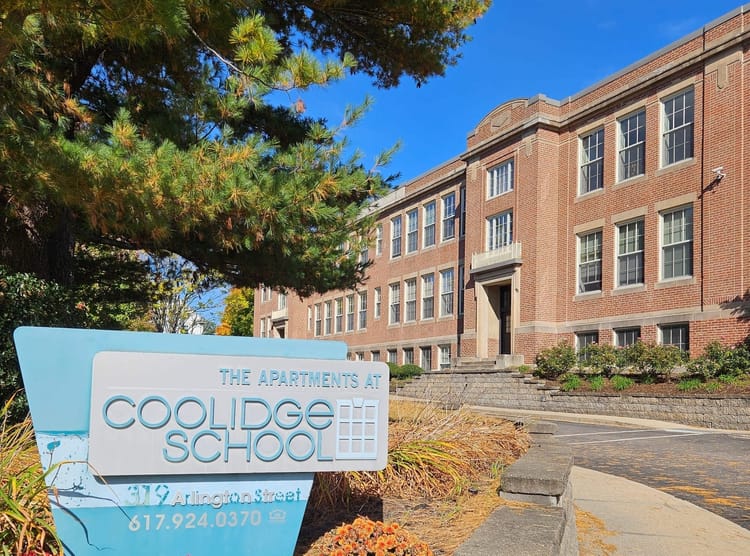Setting the record straight on "local control"

Upzone Update offers analysis of MBTA-C compliance efforts, produced by zoning expert Amy Dain and the staff of Boston Indicators. This week's article is by Amy Dain.
Debates about land use policy often hinge, at least rhetorically, on a question of control: Should control belong to the state or to municipalities? After Milton’s referendum last week turned down new zoning for multifamily housing, an opponent of the zoning said residents don’t want Beacon Hill telling them what to do. Yet, with the balance of control local, over the last century, municipal zoning has caused housing shortages, undermined transit, increased segregation, and lessened American social mobility.
The local power to zone is given by the state; it has always been shaped and limited by state laws. Notably, the MBTA Communities zoning law does not cancel that local control. MBTA Communities sets performance standards for municipalities to meet, such as zoning at least 50 acres for multifamily housing, and creating a certain “capacity” for multifamily structures. Under this law, the municipalities still design the zoning. The municipalities decide where to draw the district boundaries, and what density, dimensional, and form requirements to apply.
Moreover, the MBTA Communities law does not require a comprehensive redesign of zoning. A compliant zoning district only has to cover, at most, 50 acres, which is less than a single percent of the developable land area of most cities and towns.
In theory, the power to regulate land uses could be exercised entirely by the state. Imagine, at that end of the spectrum, the state adopting statewide zoning, managing permit applications and appeals, and granting permits. Or, at the other theoretical extreme, the state could entirely hand off zoning power to localities, even letting them write their own zoning playbooks for appeals processes and voting thresholds, for example.
As it stands, the state has positioned the balance of power toward the municipal end of the spectrum, while setting basic frameworks and limits. Massachusetts has a Zoning Act, Chapter 40A, that establishes many rules for local zoning, for example that municipalities will have Boards of Appeals to hear petitions for variances (relief from zoning requirements). Chapter 40A also establishes the voting threshold for most local zoning changes as a two-thirds supermajority, and as a simple majority for certain reforms. Municipalities are not given authority to write different standards for voting thresholds or review of variance requests into their charters.
In 1950, Massachusetts enacted the Dover Amendment, exempting religious buildings from local zoning. Later, educational institutions, childcare, and farming were added to the list of things localities cannot restrict with zoning. In 1969, Massachusetts enacted Chapter 40B to let residential developments containing a certain amount of affordable homes bypass local zoning, under certain circumstances. With the Dover Amendment and 40B, the state is not undertaking the zoning (drawing districts for these uses on a zoning map), but instead is giving these uses a pass from having to adhere to local zoning.
In 1960, Massachusetts adopted the Home Rule Act, letting municipalities exercise power (via local laws and charters) that the state has authority to delegate, without any explicit delegation of the power, as long as no state laws preempt the power. The state has the authority to preempt local land use regulation, in all of its facets. But it is worth noting that the MBTA Communities zoning law is not taking back zoning power from municipalities.
The MBTA Communities zoning law only requires municipalities to create zoning for transit-oriented multifamily housing, because people need housing, and locating new housing near stations is good for the environment, mobility, and humanity.
If municipalities fully implement MBTA Communities zoning, they will reduce the housing shortage, while bolstering both social and transit mobility. The thing is, the state set the performance standards at levels to be politically viable in municipal arenas, but not at levels high enough to solve the housing crisis. Furthermore, in some municipalities, even the moderate performance standards may prove politically unviable. All of this points to the need for even more state-level involvement in housing policy going forward.
ARTICLES
Milton takes the spotlight, and invites enforcement
The biggest news in zoning reform in the last two weeks has been in Milton. In December, a special town meeting in Milton passed zoning reform to come into compliance with the MBTA Communities zoning law, by the 2023 deadline that the state set for the 12 communities served by rapid transit. Last week, Milton voters rejected that zoning in a referendum, leaving Milton out of compliance. This zoning news even made it to TV (WCVB 5 ABC). And to local news outlets like the Franklin Observer.
GBH’s Adam Reilly discussed what happened in Milton with Boston Globe columnist and Milton resident Shirley Leung and GBH News transportation reporter Bob Seay. “You almost don’t want to ask a neighbor how they are voting, it was so contentious,” said Leung. MassLive’s Tréa Lavery reported that the majority of the dissenting votes came from East Milton, where the zoning in question would have allowed more multifamily housing, in addition to an area near the train. Opponents expressed concerns about traffic.
Salim Furth offers an in-depth analysis of what happened in Market Urbanism, including maps, photos, and personal observations. In East Milton’s Ward 7, 82 percent opposed the rezoning. Salim grew up in East Milton, and is a national expert in zoning policy now. He explains:
The real man-bites-dog story in Wednesday’s vote isn’t in East Milton. It’s along the street named for the Puritan apostle [Eliot], which parallels the trolley tracks. […]
The Neponset River in this section divides a 70 percent white census tract from a 95 percent non-white one surrounding Mattapan station. In my teen years, I remember a desultory movement to have the Capen Street trolley stop closed out of concern for crime. I expected these residents to vote no: Theirs were the only houses being rezoned, and they live at the bleeding edge of a stark color and culture line. […]
On Wednesday, the ward including Eliot Street voted 67 percent to 33 percent in favor. The wards on each side of Blue Hills Parkway were also in favor. I don’t have a theory of the case. One person I spoke to pointed out that it’s a more progressive neighborhood. Another obvious aspect is that people here bought a home along a trolley line—they knew they were living in a city.
After Milton, the Boston Globe’s Andrew Brinker asks, What Now? The Globe’s editorial board weighed in, saying, “It’s a law, not a suggestion,” and that Milton has volunteered to be a test case for the state’s willingness to enforce the law. The Globe’s Emily Sweeney reported that Milton will lose out on state grants. Secretary of the Executive office of Housing and Livable Communities Edward Augustus sent a letter to Milton about this consequence. Attorney General Andrea Joy Campbell posted to X: “My office has made it clear that compliance with the law is mandatory.”
Radio Boston asked former state Attorney General Scott Harshbarger for his take on what happens next. And Reason magazine interviewed Abundant Housing’s Jesse Kanson-Benanav who suggested that developers might sue non-compliant town governments when their proposed projects near train stations are rejected.
There is still hope for a conciliatory process that leads to compliance in Milton. Affordable Inclusive Milton, Abundant Housing Massachusetts and CHAPA have built momentum for a pro-housing agenda in Milton. The referendum rejected the zoning approved by Town Meeting, but Town Meeting can use the feedback to design and approve new districts in compliance with the state law.
Greg Ryan of the Boston Business Journal pointed out that Littleton Town Meeting also rejected a rezoning proposal that would have put Littleton in compliance with MBTA Communities requirements, but Littleton still has until the end of 2024 to comply.
Meanwhile, the work of local zoning reform is underway.
Methuen’s Director of Economic and Community Development Jack Wilson said that “Whether we as a community want to do this or not, the laws of the Commonwealth are saying you must,” the Eagle Tribune reported.
The Swellesley Report reports that Wellesley is “practically already in compliance,” and just needs some tweaks to its zoning. The zoning Wellesley already adopted to redevelop the Wellesley Office Park, at the intersection of Routes 9 and 128, will meet some of the requirements.
In CommonWealth Beacon, Greg Reibman of the Charles River Regional Chamber explains that Wellesley is moving toward “paper compliance,” using zoning for “an already permitted, half built, largely leased, project,” at Wellesley Office Park, on the far side of highways and rivers from train stations and walkability—to come into compliance with the MBTA Communities requirements. He concludes: “We should all worry that other municipalities across Eastern Massachusetts are in the process of drafting their own paper plans using similar workarounds.”
Harvard’s Planning Board is focused on an 8-acre parcel near the Route 2 interchange, across from Dunkin’ Donuts, for its MBTA Communities–compliant district. The plan is to bring this to the April 6 Town Meeting, if the details are finalized in time.
Shrewsbury officials are eyeing the former Christmas Tree Shop site, at the intersection of Routes 9 and 20, for an MBTA-Communities zone. This is two miles from the commuter rail station in Westborough.
The Housing Needham Advisory Group is exploring options for Needham to come into compliance. The aim is for a Town Meeting vote in October.
Learn about MAPC’s new district suitability tool, by visiting the MAPC site.
EVENTS, HEARINGS, MEETINGS
**COOL EVENT ON PARKING!**
MAPC’s Transportation Team is hosting an in-person event with author Henry Grabar about parking policy on Tuesday, March 19 at 8:30 am in the Fort Point Room at Atlantic Wharf. He will discuss how parking requirements shape neighborhoods and impact housing options. Register for the event. Henry Grabar wrote the book on parking!
MAPC is also hosting a webinar about its district suitability analysis tool on Tuesday, February 27 from 12:00 to 1:30 pm. Register here.
MHP is hosting a webinar on how planning staff and consultants are preparing for Town Meeting and City Council votes on MBTA Districts – on Tuesday March 19, 12:00 to 1:30 pm. Register for the Zoom.
Boston University’s Initiative on Cities is hosting a forum, Zoning for Change: Insights from the MBTA Communities Act Implementation, at the Kenmore Room (Rm 916), One Silber Way, Boston, on Monday, March 4, from 3:00 to 5:00 pm. Reception included. Register at this site.
Billerica’s second open house on MBTA Communities will be held Monday, February 26 at 7:00 pm at the Hajjar Elementary School. For more information about Billerica’s rezoning effort, see the Town website.
The next public hearing of Harvard’s Planning Board regarding the multifamily overlay zone will be held on Monday, February 26. Check the Planning Board’s webpage for the agenda and the time and location of the hearing.
Bisnow will hold a summit on real estate in Boston’s suburbs and the impact of the MBTA Communities zoning law on Wednesday, May 8, 2024, at 8:00 am. Tickets are $115.
The Needham Housing Coalition and CHAPA are hosting a public forum featuring research by Amy Dain (the producer of the Upzone Update newsletter) on Thursday, February 29, from 7:00 to 8:30 pm at the Needham Public Library and on Zoom.
Wilmington’s Planning & Conservation Director Valerie Gingrich will discuss MBTA Communities zoning at the Senior Center on Wednesday, February 28 at 1:00 pm. Cocoa will be served.
Wellesley will host an online event about zoning on March 7 at 6:30 pm. Register online. Information about Wellesley’s MBTA Communities zoning can be found on Wellesley’s website.
Westford is hosting a Lunch & Learn about MBTA Communities on February 23 from 12:00 to 2:00 pm at the Cameron Senior Center. Westford staff will review the proposed zoning bylaw and overlay district and solicit feedback. Westford has created an MBTA Communities Multi-family Housing Advisory Committee (MCMAC), appointed by the Town Manager, and contracted the consulting services of Dodson & Flinker, who will assist with research, public engagement, bylaw drafting, and other aspects of the process. More information is online.
THE MBTA COMMUNITIES TRACKER
Note that all of the newsletters can be found on Boston Indicators’ MBTA Communities Tracker.





